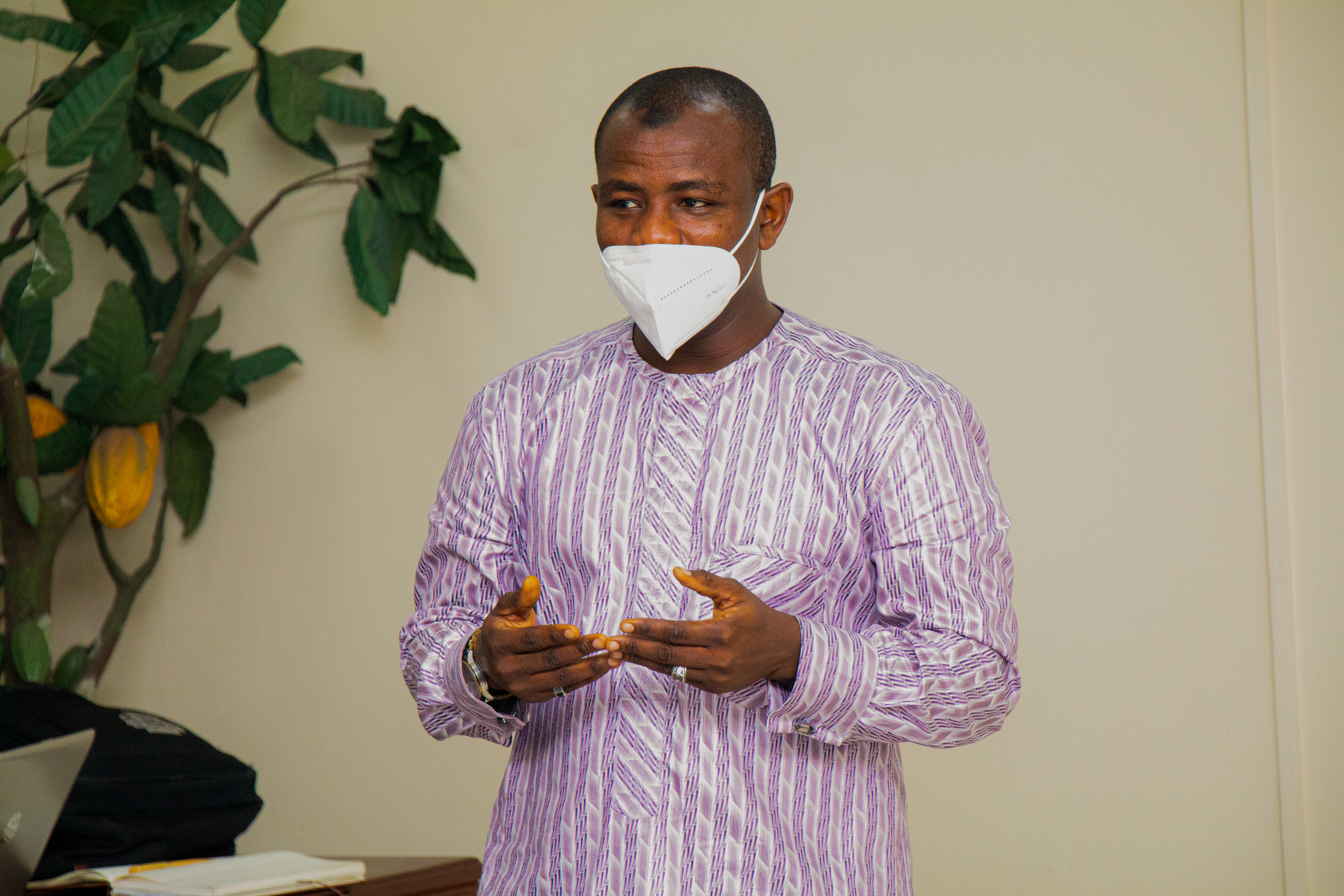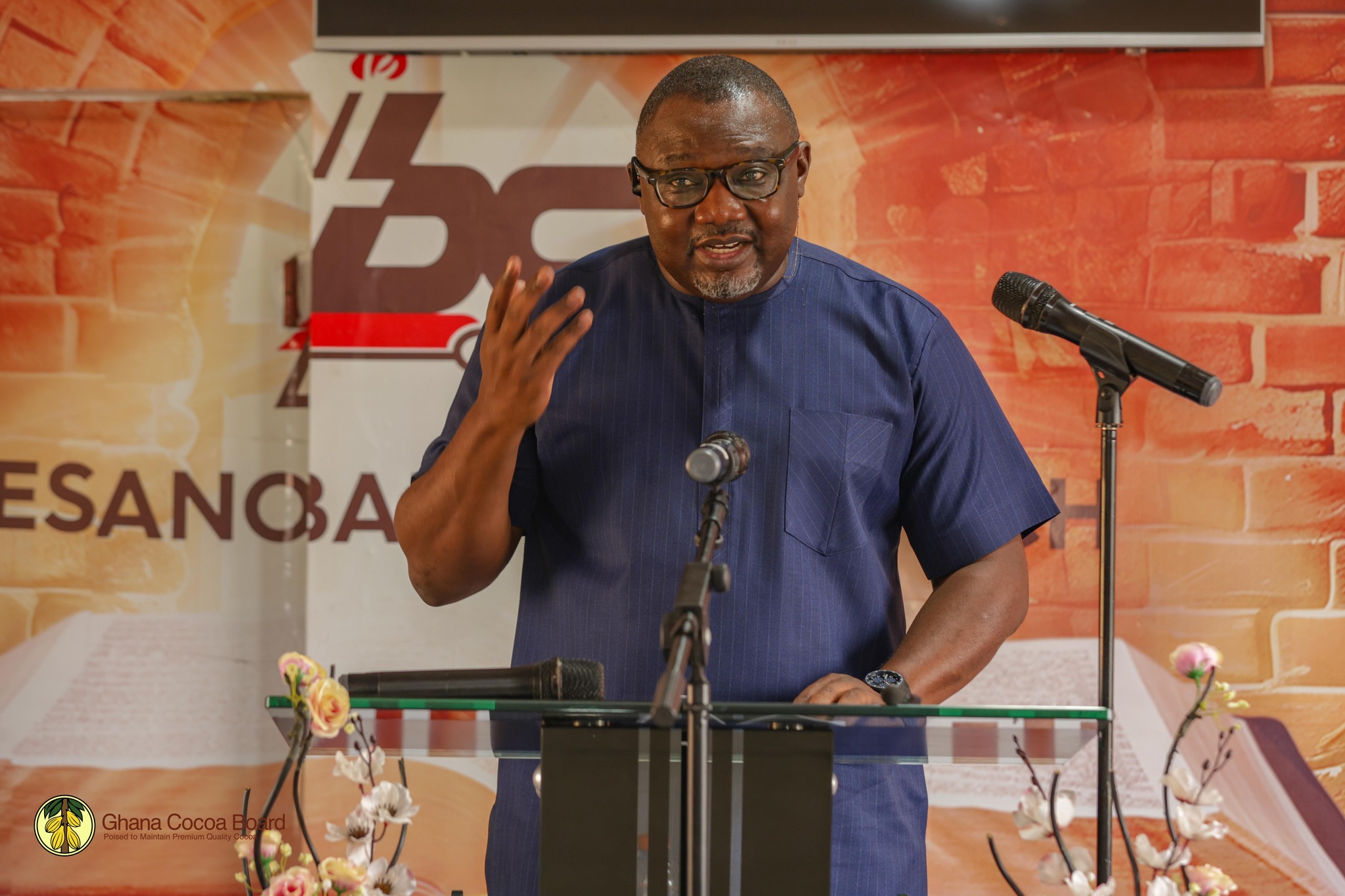COCOBOD TRAINS CHED STAFF ON WEATHER INTELLIGENCE AND CLIMATE RESILIENCE IN COCOA PRODUCTION

Date: 29th July 2021
Ghana Cocoa Board (COCOBOD) has organised a two-day training programme for the management and staff of its Cocoa Health and Extension Division (CHED) on weather intelligence to enhance cocoa production.
The training forms part of efforts by COCOBOD to integrate the tenets of Climate Smart Agriculture (CSA) into cocoa production activities to minimize the effects of erratic weather patterns on cocoa production. The tenets of CSA comprise improving productivity, building climate resilience, and reducing greenhouse emissions.
The programme also included training on accessing and interpreting climate information to inform the implementation of COCOBOD’s projects in the cocoa- growing areas of the country.
The training facilitator, Mr. Fuad Mohammed Abubakar, a Principal Trader and Head of Crop Forecasting at the Cocoa Marketing Company (CMC) GH Ltd, said cocoa pod development, pests and disease attacks are influenced greatly by the weather, hence, the need to apply weather information to plan routine activities.
Mr Fuad exposed participants to various climate/weather information platforms and explained how they could use weather observations to guide decision making with regard to when to transplant, pollinate, fertilize, prune and commence control measures against pests and diseases.
Dr. Gilbert Anim-Kwapong, the Director in charge of Monitoring & Evaluation for CODAPEC/HITECH at CHED affirmed the essence of the training programme, which provides insights into weather variability and its impacts on the interventions of COCOBOD.
“With our work,” he said, “this is very important because once you can get the forecast of what the rainfall pattern will be like, you can put in the necessary measures to mitigate the impact of the weather’, he indicated.
Dr Anim-Kwapong further explained that weather intelligence gathering will help to improve the application and management of farm resources like fertilizers and other agrochemicals.
“In the application of foliar fertilizers, for instance, if you have no information on rainfall within a period and the fertilizer is applied, it can all be washed away,” he cautioned.
Mr. Farouk Nyame, Deputy Executive Director at CHED in charge of Productivity Enhancement Programmes (PEPs), said some field officers of his outfit had been identified and would be trained to provide regular, and timely weather intelligence reports to support operational activities.
According to Mr Farouk, the PEPs, would be rolled out at various zonal demarcations in the cocoa-growing areas based on these weather intelligence reports for successful outcomes.
This new approach aims at improving returns on investments into the PEPs and helping farmers optimize their yields.
Other News / Articles you might be interested in.

COCOA MEDIA HUB LAUNCHED TO ENHANCE OPEN GOVERNANCE AND FARMER ENGAGEMENT
Ghana Cocoa Board, along with various stakeholders, has participated in the official launch ...
Read More
COSSA - HEAD OFFICE ELECTS NEW EXECUTIVES
The COCOBOD Senior Staff Association - Head Office (COSSA - Head Office) has ...
Read More
BUNSO COCOA COLLEGE HOLDS 3RD GRADUATION CEREMONY
By Geoffery Opoku-DarkoThe Bunso Cocoa College (BCC), a division of the Ghana Cocoa ...
Read More